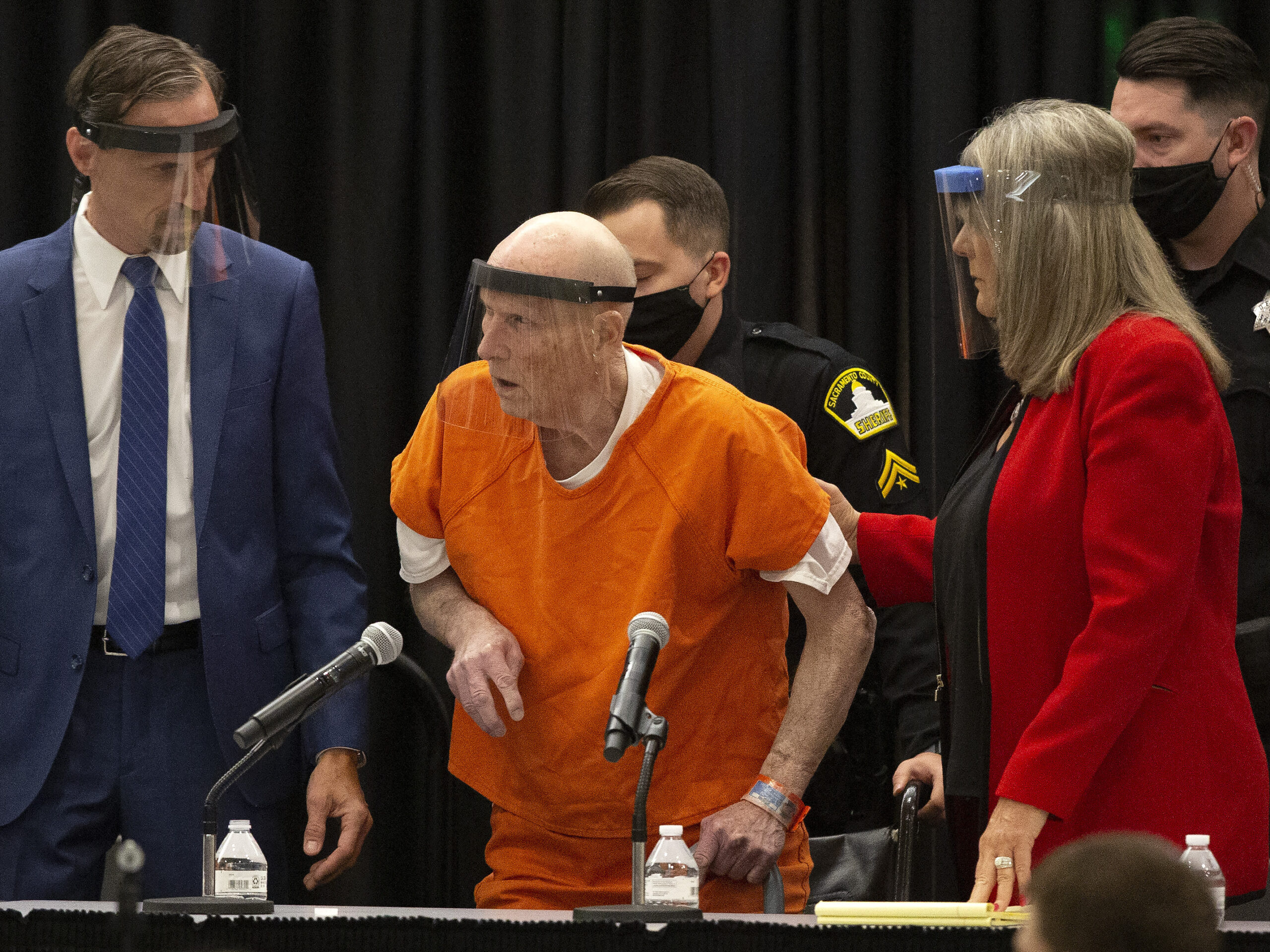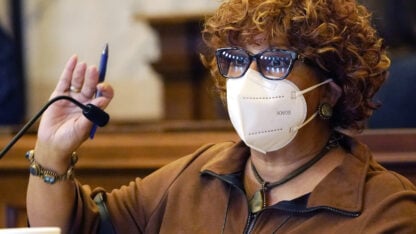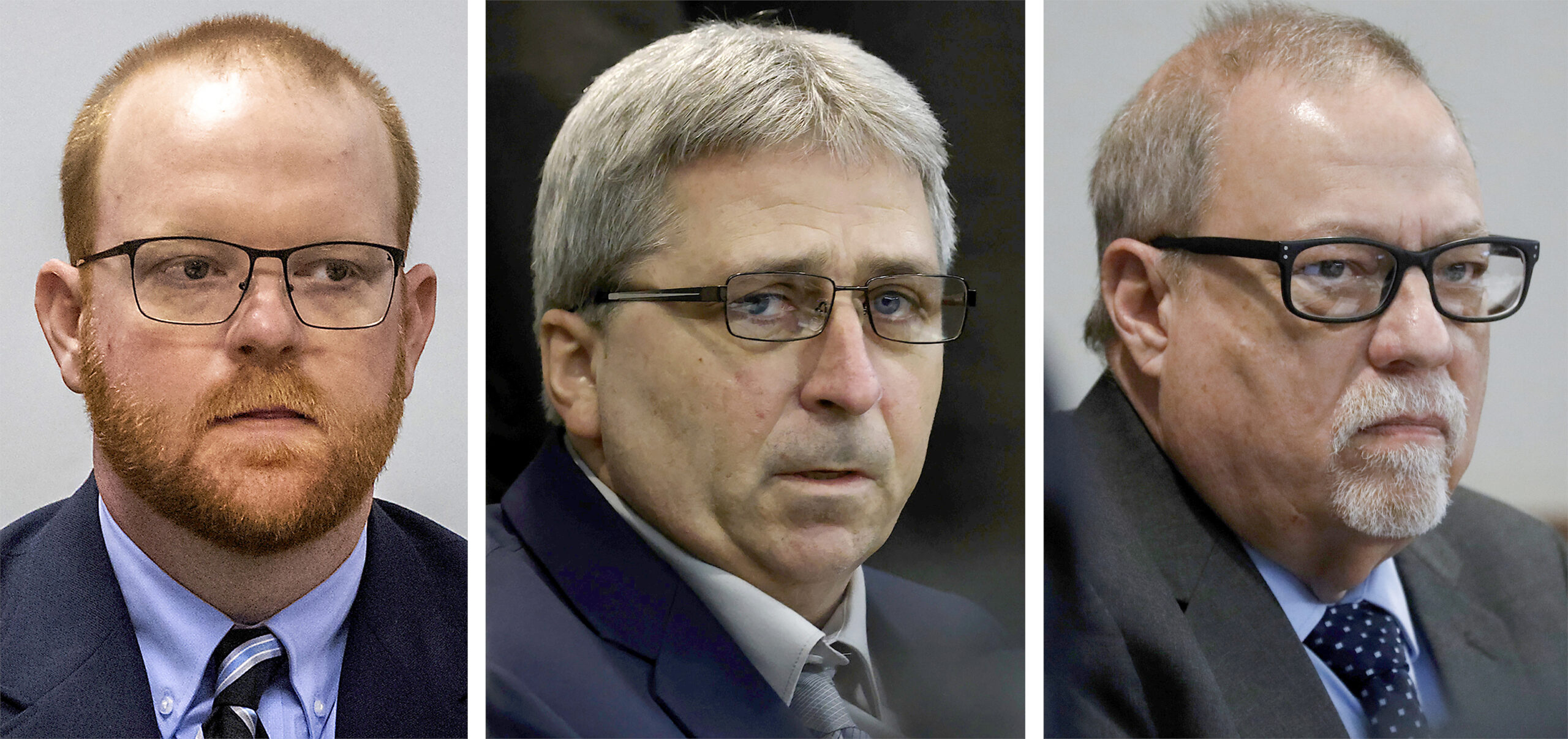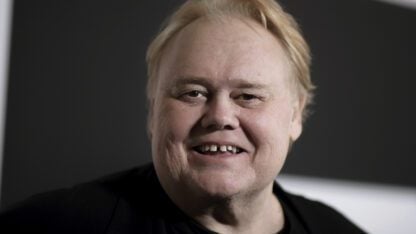Golden State Killer Suspect Pleads Guilty To More Than A Dozen Murders

Accused Golden State Killer Joseph James DeAngelo (center) pleaded guilty on Monday in Sacramento, Calif., to 13 murders and other related charges.
Rich Pedroncelli / AP
Wearing an orange jumpsuit and a clear face shield to protect against the coronavirus, former police officer Joseph James DeAngelo Jr. pleaded guilty on Monday to 13 counts of first-degree murder. The string of murders in the 1970s and ’80s terrorized California, and the suspect who committed them became known as the Golden State Killer.
DeAngelo, 74, sat in a wheelchair as he rasped out “yes” and “I admit” to the charges, after prosecutors described the grisly circumstances of each crime. Otherwise, he hardly spoke and did not look at the victims’ families.
“Mr. DeAngelo is acknowledging his guilt for the heinous crimes he has committed,” said Contra Costa County District Attorney Diana Becton. “There is really nothing that could give full justice because he has committed horrendous acts and murder up and down the state of California. But at least we can now begin the process — after decades — to bring some closure to families.”
The hearing took place in a makeshift courtroom within a ballroom at Sacramento State University, NPR’s Eric Westervelt reports from the scene. The chairs in the gallery were spaced 10 feet apart for social distancing, attorneys wore face shields, and sheriff’s deputies wore black face masks.
The long-unsolved murders grabbed headlines anew in 2018 when law enforcement officers announced they had identified DeAngelo as the suspect using DNA from a publicly available genealogy website to crack the case.
Investigators used the DNA evidence from one of the murder scenes to create a profile of the killer, which they then uploaded to the genealogy website. That site linked the killer’s profile to a distant relative of DeAngelo. Investigators then confirmed the link by collecting DeAngelo’s DNA from his car door and a discarded tissue, according to The Associated Press.
DeAngelo’s attorneys struck a plea deal with prosecutors that means DeAngelo will avoid the death penalty. California has not executed an inmate since 2006. In March 2019, Gov. Gavin Newsom signed an executive order instituting a moratorium on the death penalty in the state. DeAngelo will face consecutive life sentences with no chance of parole.
The use of genealogy data to find a murder suspect has raised privacy concerns. People who decide to have their DNA analyzed by popular services are potentially giving away data that could point to their relatives and their descendants.
“The police currently [are] using these techniques to find … [murderers] and bad people,” researcher Yaniv Erlich told NPR’s Rob Stein in 2018. “But are we OK with using this technique to identify people in a political demonstration who left their DNA behind? There are many scenarios that you can think about misuse.”
9(MDAxODM0MDY4MDEyMTY4NDA3MzI3YjkzMw004))








